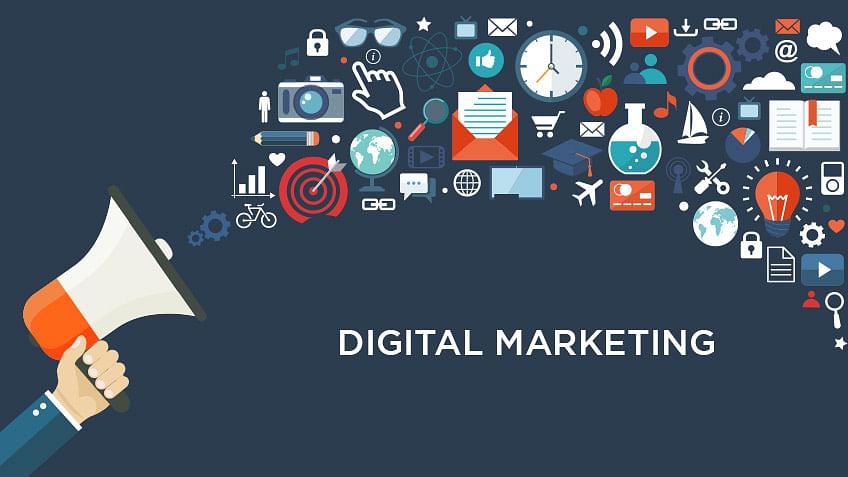Transform Your Company With Data-Driven Digital Advertising
In today's quickly advancing market, leveraging data-driven digital advertising has actually become essential for services intending to enhance their competitive edge. By using analytics to gain insights into customer actions, organizations can tailor their marketing approaches for maximum effect.
Understanding Data-Driven Marketing
Data-driven marketing is progressively acknowledged as an essential method for organizations aiming to improve their advertising effectiveness. This technique relies upon the methodical collection, analysis, and utilization of information to educate advertising methods and choices. By leveraging various information resources, consisting of consumer demographics, habits patterns, and market fads, organizations can develop targeted projects that resonate with specific target markets.
At its core, data-driven advertising includes integrating analytics right into the advertising process. This permits real-time understandings into project efficiency, allowing marketing professionals to make informed modifications and enhance their techniques. By understanding consumer choices and involvement degrees, organizations can craft tailored messaging that is most likely to convert potential clients right into dedicated clients.
Additionally, data-driven advertising cultivates a society of accountability within companies. Marketing professionals can track their roi (ROI) and examine the effectiveness of various networks, such as social networks, email, and internet search engine. This analytical technique not just boosts decision-making but additionally encourages continuous renovation in marketing techniques as companies refine their approaches based on empirical proof. As businesses embrace data-driven advertising and marketing, they position themselves to respond properly to altering market dynamics and consumer assumptions.
Benefits of Data Analytics

One of the key benefits is the capacity for individualized marketing. Information analytics allows companies to section their audience properly, customizing messages and supplies that reverberate with details teams. This degree of personalization not only enhances interaction rates however likewise fosters brand name commitment.
In addition, information analytics facilitates real-time decision-making. Marketing experts can keep an eye on campaign efficiency continuously, adjusting techniques based on immediate responses and results. This dexterity brings about enhanced source allowance and enhanced roi.
Furthermore, predictive analytics encourages companies to anticipate future fads and consumer demands, enabling for positive techniques rather than responsive steps. This insight can be a substantial competitive advantage in today's vibrant market landscape.
Secret Tools and Technologies

Among the key modern technologies is Client Partnership Management (CRM) software application, which permits companies to manage client interactions and examine data throughout the YOURURL.com consumer lifecycle. Additionally, marketing automation platforms enhance repetitive tasks, helping with individualized interaction and lead nurturing.

Information visualization devices, such as Tableau and Google Information Workshop, aid specialists translate complicated information sets, providing understandings in a conveniently absorbable style. Furthermore, analytics platforms like Google Analytics offer vital metrics on site traffic and individual habits, allowing marketers to enhance their techniques.
Social media analytics tools, such as Hootsuite and Sprout Social, supply insights right into audience involvement and material efficiency throughout various systems. A/B testing devices, like Optimizely, enable online marketers to experiment with different strategies, making certain that data-driven decisions are consistently improved. By leveraging these modern technologies, services can foster a data-centric society, causing much more effective electronic advertising campaigns.
Carrying Out Effective Approaches
To successfully carry out efficient strategies in digital advertising, companies should initially align their goals with workable understandings stemmed from data analytics. This placement enables companies to customize their advertising efforts, ensuring they resonate with target audiences. By leveraging data from numerous channels, such as social media, e-mail advertising, and website analytics, business can determine fads, preferences, and actions that notify their approach.
Next, it is important to prioritize client segmentation. By categorizing their audience based on demographics, passions, and buying actions, organizations can create customized marketing campaigns that drive interaction and conversion. Automation tools can facilitate this process, allowing online marketers to provide timely, relevant content to details sectors.
In addition, welcoming a dexterous advertising technique can boost responsiveness to market adjustments and consumer feedback. Routinely assessing project efficiency and making data-driven adjustments can enhance results and source allocation.
Lastly, cultivating a culture of partnership between advertising, sales, and data analytics teams is vital. This multidisciplinary method ensures that understandings are properly shared and integrated right into wider company techniques, eventually driving sustained development in a competitive landscape.
Measuring Success and ROI
How can organizations successfully measure success and return on investment (ROI) in digital marketing? These KPIs give a quantitative basis for evaluating the performance of electronic marketing efforts.
Making use of analytics tools is crucial in this procedure. Platforms such as Google Analytics and social media sites insights enable companies to track user habits and project efficiency in real time. By assessing data, organizations can identify which strategies generate the finest outcomes and designate resources as necessary.
In addition, employing ROI estimations can provide a more clear image of economic performance (Digital Marketing Lockhart). This includes determining the earnings generated from electronic marketing efforts against the overall prices incurred. An uncomplicated formula is (Net Revenue/ Expense of Financial Investment) x 100 to determine the ROI percentage
Eventually, a comprehensive approach that combines measurable and qualitative analysis will certainly enable organizations to analyze their electronic marketing success accurately and make educated choices for future campaigns. This data-driven attitude is critical for continual improvement and sustainable development.
Verdict
In conclusion, the assimilation of data-driven electronic marketing stands for a transformative approach for companies seeking to improve engagement and foster brand name loyalty. The application of vital tools and modern technologies better promotes this process, making certain that advertising and marketing efforts are straightened with consumer actions and assumptions.
In today's rapidly advancing market, leveraging data-driven electronic Look At This advertising has come to be important for companies intending to boost their competitive edge (Digital Marketing Lockhart).Data-driven advertising and marketing is progressively acknowledged as an important strategy for businesses aiming to boost their advertising effectiveness.At its core, i was reading this data-driven advertising entails incorporating analytics into the advertising and marketing process. As services welcome data-driven marketing, they position themselves to react effectively to changing market dynamics and customer expectations
In conclusion, the integration of data-driven digital advertising stands for a transformative approach for services looking for to boost involvement and foster brand name loyalty.